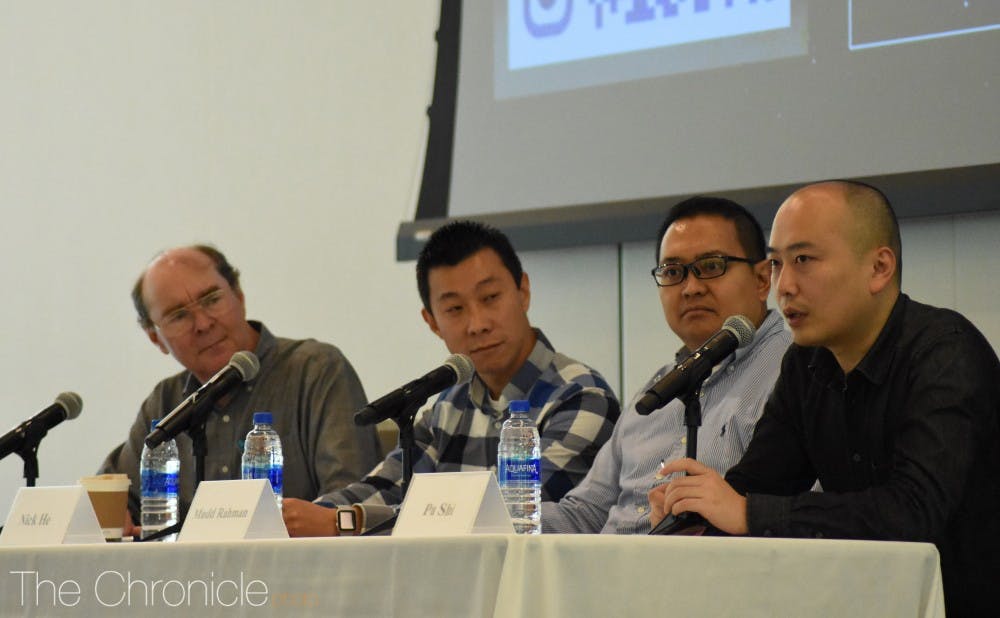China has an unparalleled wealth of data that students should take better advantage of by combining Chinese and American strengths, an expert said.
Although China missed the first two industrial revolutions, said Denis Simon, executive vice chancellor of Duke Kunshan University, it now boasts the largest reservoir of information across all of the industrialized countries.
Simon spoke in a keynote this weekend at an event entitled "Duke China-U.S. Summit Superpowers in the Age of Big Data"—hosted by the the Duke Chinese Student Association and Duke Kunshan University at Penn Pavilion—with panelists including a mix of entrepreneurs and professors.
“Innovation today, now in China, is not solely focused on technology, but increasingly focused on business models," Simon said. "Big data now is all about capturing the new habits and the new modes of behavior that surround these new economic orientations.”
The first panel, focusing on the importance of data for public policy and social innovation, echoed Simon’s perspective that learning how to collect and manipulate data is not enough. Although China's education has a strength in knowledge-based fields such as math and natural sciences, it is also crucial to embrace an American-style liberal-arts education, which cultivates the creativity necessary to make purposeful use of data analysis, one panelist argued.
“Big data is utilized to solve the problem. If you don’t know how to define the question, then your coding won’t result in anything,” said Bailian Li, senior vice provost for global engagement at North Carolina State University.
In addition to their encouragement of a liberal education, both Li and Claire Du, the Founding Partner and CEO of TechRock Global, also emphasized the necessity of an entrepreneurial spirit. They each expressed their belief that in order to make a real difference in this era, students need to be leaders in addition to learners because technology is merely a tool that isn’t worth much without a purpose.
“If you work hard to be the best engineer, then you’ll become the best engineer and that’s it. However, if you focus on becoming a leader, you can always hire another engineer to help you out,” Du said.
Hongbin Gu, Chapel Hill town council member and associate professor at the University of North Carolina at Chapel Hill School of Medicine, cited an example of using data analysis in creating bus routes. She said that if she sent out a survey, she would not expect to receive responses from the majority of the people who are actually using city transit, because those who have access to the survey are mostly people who own cars.
“There are people in our town who are invisible,” Gu said. “These are the people that when we’re creating our smart-city situations, we should be acutely aware of.”
The summit also featured two additional panels that also covered topics related to technology and entrepreneurship, a Keynote speech on blockchain technology and its possibly revolutionizing effect on the U.S. and Chinese economies, a career fair and a networking dinner with representatives from U.S. and Chinese companies.
Attendee Lili Wang, a second-year graduate student at North Carolina State University, said that the talk made her want to do learn more outside of the classroom.
“Previously I was just thinking about getting the knowledge, and then I can maybe do whatever I want to do," Wang said. "But now, I realize that I really need to start doing something instead of just learning.”
Get The Chronicle straight to your inbox
Signup for our weekly newsletter. Cancel at any time.

